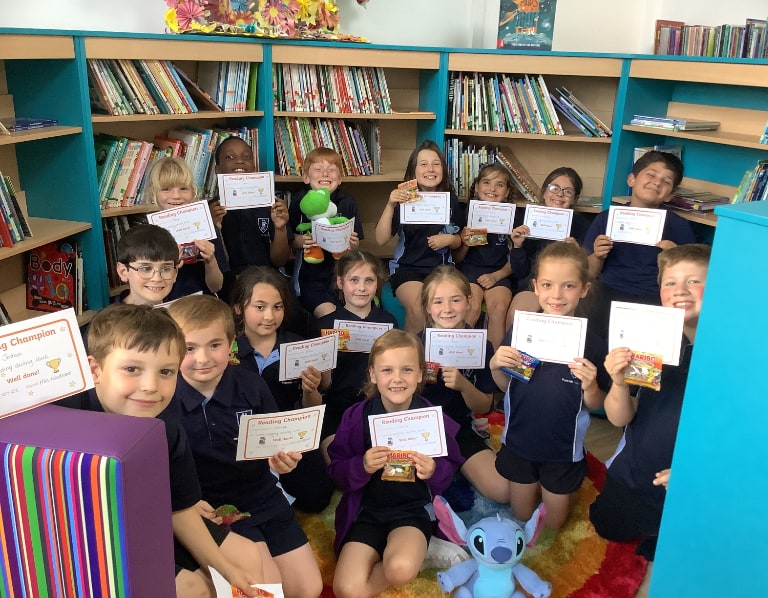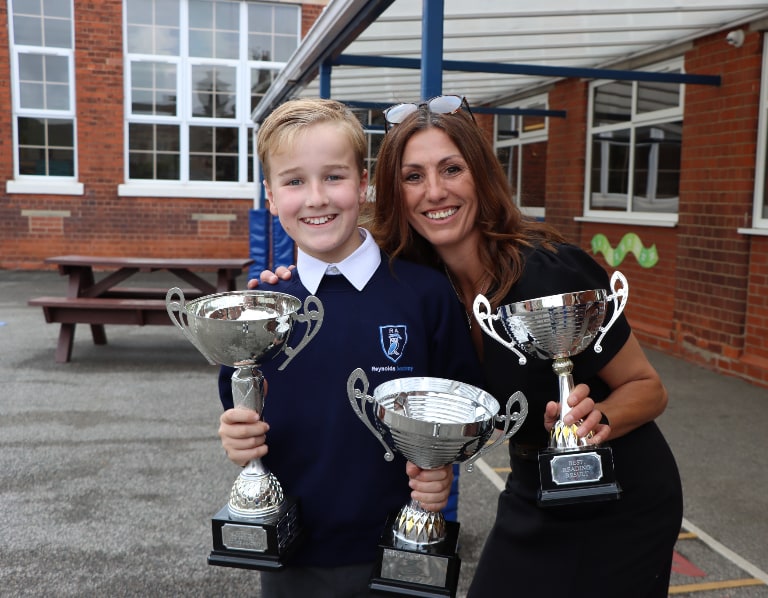Reading
Curriculum Leader: Miss Lacey Jenney
Intent:
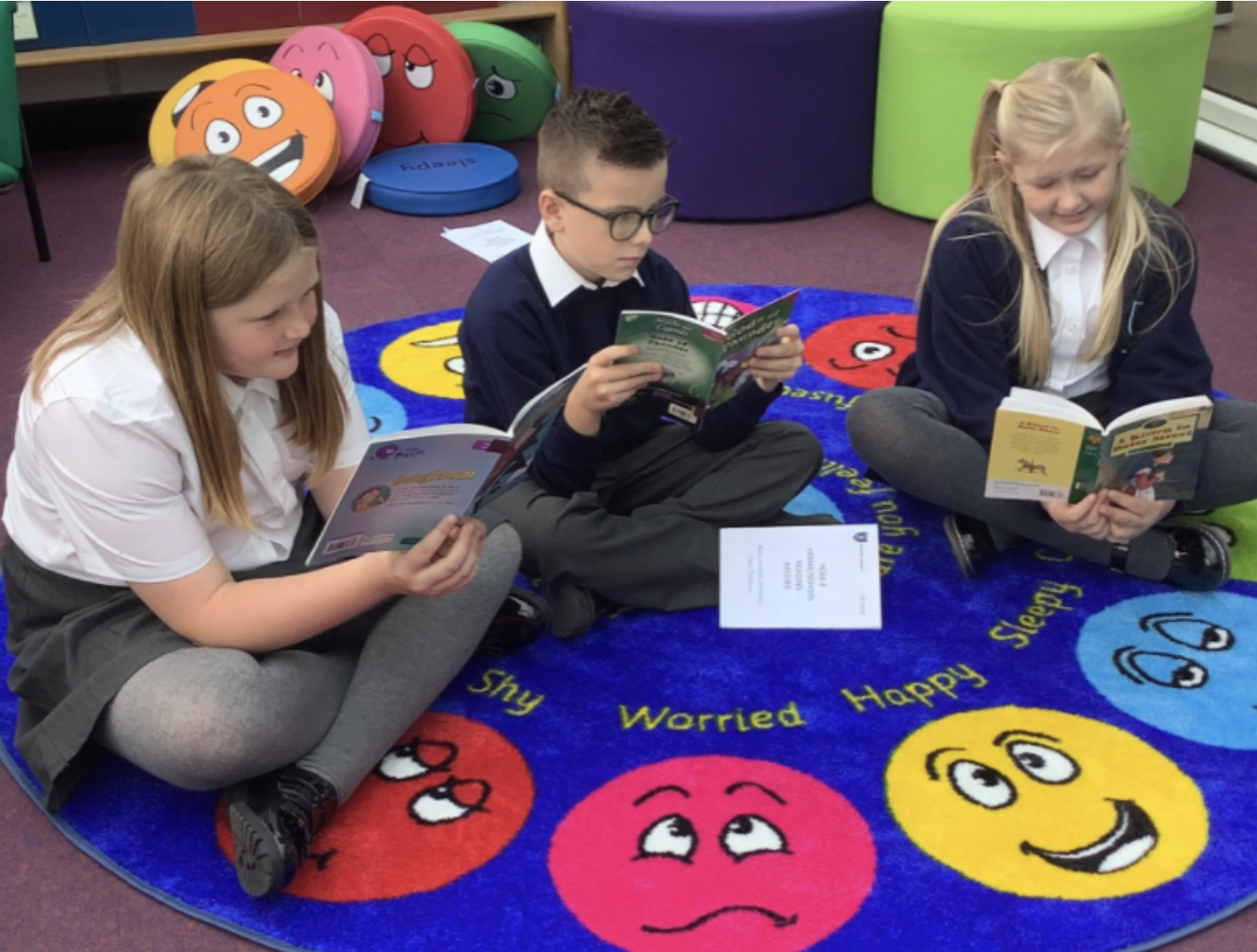
At Reynolds Academy, we believe that the teaching of reading is integral to a child’s understanding and appreciation of the world around them; a platform that allows our children to see beyond what they know, share in cultural experiences and develop the vocabulary they need to effectively express themselves. We are committed to fostering a love of reading and enabling our children to become life-long readers; therefore, life-long learners. By the time the children leave the school, our aim is that they will be competent and enthusiastic readers who have had experiences with a wide variety of literature and who see the value in reading.
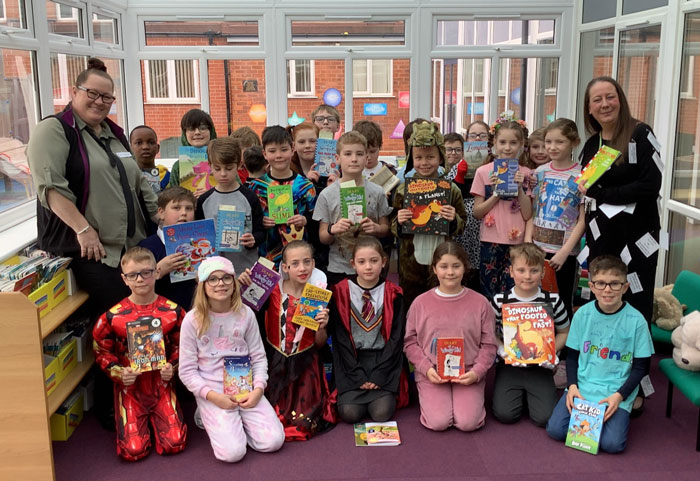
Implementation: What approach do we take to teaching reading?
Our reading journey begins in Foundation Stage and is taught through systematic synthetic phonics using Bug Club Phonics. At this point, children will learn all 44 sounds and the corresponding letter groups. Following Bug Club phonics and the pacing sheets created from the programme, further phonics work throughout KS1 paves the way for competent word reading. Early reading is supported through the use of Bug Club decodable books which are matched carefully to the sounds that the children know. Staff encourage children to re-read these books to develop fluency. It is important that children listen to a mixture of new texts and stories, but that they also enjoy revisiting well-known stories, their favourite stories and ones which they have chosen for themselves.
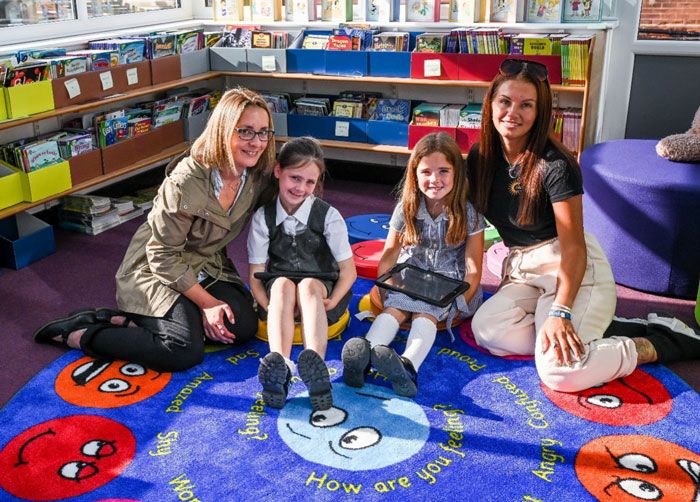
As the children progress through the school, word reading continues to be supported through use of a system of levelled books, which the children progress through. Alongside reading banded books, the children are encouraged to develop their own personal preferences and have the opportunity to choose their own books from the selections within the classrooms and in the library. To help embed a culture of reading, we provide the children with opportunities to read independently, on a one-to-one basis with an adult and as part of whole class teaching. We also provide 15 minutes at the end of the day for children to read solely for pleasure. Pupils listen to their class teacher reading, allowing them to the time to really just enjoy listening to someone read. As part of our focus on reading, we have developed two new welcoming reading areas in the school where our children can relax in comfort and let a book whisk them away to a new world. There is a dedicated library slot for each class during which we encourage children to share their opinions, ideas and thoughts about what they read. In addition to this, we have forged links with members of the local community which has allowed us to organise a weekly visit from a therapy dog – something that further encourages the children to read!
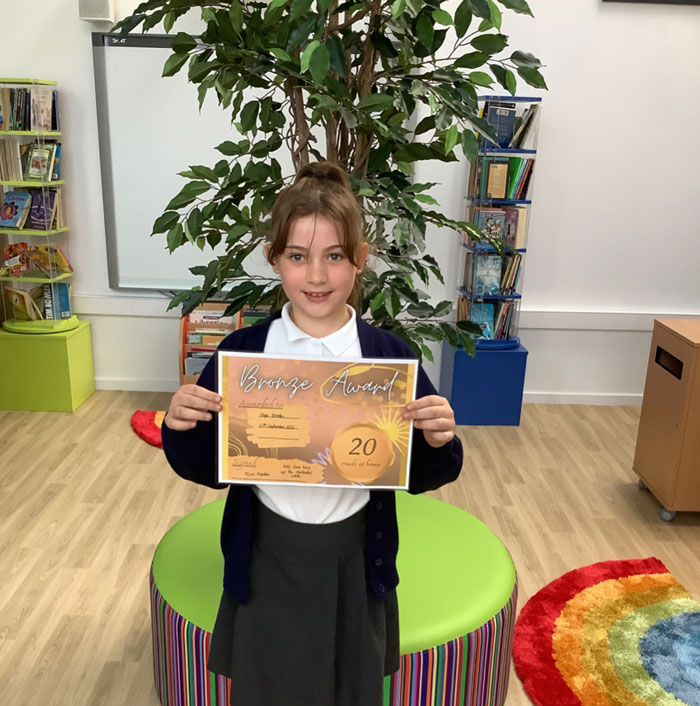
Comprehension skills are developed and embedded as part of whole class guided reading sessions which generally feed into the writing that children are focusing on. Reading Gems are implemented across the school which relate directly to the content of the National Curriculum. Children become familiar with a range of different reading domains through the explicit teaching of these skills during dedicated guided reading sessions. In addition, children are also exposed to a variety of supporting texts to further enhance their knowledge, particularly with reference to non-fiction and poetry. We promote reading for pleasure as part of our reading curriculum and children are encouraged to develop their own preferences of genres and authors.
Impact/assessment
We use Depth of Learning for teachers and Curriculum Leaders to monitor coverage and track progress across reading. Leaders also carry out regular monitoring to ensure that appropriate sequencing is in place. Teachers use a mixture of the national curriculum, Depth of Learning statements and knowledge of the children, in conjunction with planning, to ensure that children develop their knowledge and skills as they move from Early Years through to Key Stage 1 and Key Stage 2. In addition to this, regular testing takes place through the use of Testbase.
Individual Readers
- Year 1 Individual Readers
- Year 2 Individual Readers
- Year 3 Individual Readers
- Year 4 Individual Readers
- Year 5 Individual Readers
- Year 6 Individual Readers
